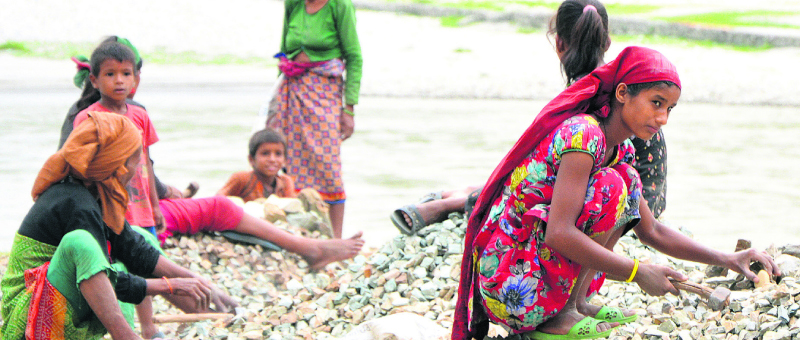Integrating gender perspectives into diplomacy has become a pressing need in today’s complex global landscape. Diplomacy now goes beyond political and economic negotiations to embrace broader issues like human rights, social justice, and equality. For Nepal, adopting a gender-sensitive approach in its diplomatic strategies can enhance representation, improve its international standing, and bring long-term economic and social benefits.
Incorporating gender perspectives ensures that diverse voices are represented at the negotiation table. Women's unique experiences and insights often provide fresh and comprehensive viewpoints that are crucial in formulating well-rounded policies. Studies consistently show that women's participation in peace processes leads to more sustainable and lasting outcomes. For example, research from UN Women highlights that peace agreements are 35% more likely to endure for at least 15 years when women contribute to their creation. Nepal benefits immensely from this inclusivity, ensuring that half of its population is represented in global decision-making processes.
Aligning diplomatic efforts with global human rights standards is another key advantage of integrating gender perspectives. Nepal, as a signatory to international conventions like the Convention on the Elimination of All Forms of Discrimination Against Women (CEDAW), has a clear commitment to promoting gender equality. By embedding these principles into its diplomacy, Nepal can further solidify its image as a progressive nation dedicated to human rights and social justice. This will not only improve Nepal’s international reputation but also strengthen alliances with other countries committed to gender equality.
Economically, the benefits of gender equality are far-reaching. Gender equality is not just a moral imperative; it can also bring significant economic growth. According to the McKinsey Global Institute, advancing gender equality could add $12 trillion to the global GDP by 2025. For Nepal, integrating gender-sensitive diplomacy can attract international partnerships and aid that focus on gender-inclusive development programs. These initiatives can spur economic growth, improve socio-economic conditions, and contribute to the nation’s development goals. Fostering such partnerships also strengthens Nepal’s position in global economic forums.
Gender, Economic Activity & Equality

A key area where gender perspectives can enhance Nepal’s diplomatic effectiveness is in peace and security. Women often provide valuable insights into conflict resolution and post-conflict rebuilding, which are essential for long-term stability. Nepal, having gone through a decade-long civil conflict, could greatly benefit from involving women in peacebuilding efforts. Liberia’s peace process offers an instructive example. Women played a crucial role in post-conflict recovery, leading to the election of Ellen Johnson Sirleaf, Africa’s first female president, and setting a precedent for the importance of women in peacebuilding. By involving women in its diplomatic strategies, Nepal could ensure more inclusive and effective peace processes.
Negotiation outcomes also stand to improve when gender perspectives are integrated. Women diplomats often bring different negotiation styles that emphasize collaboration and inclusivity, leading to more comprehensive and sustainable agreements. Norway’s integration of gender into foreign policy is a clear example of the benefits of diverse negotiation approaches. Norway’s involvement in the peace talks between the Colombian government and FARC rebels, where gender issues were a central focus, contributed to the long-term success of the peace agreement. Nepal could similarly benefit from adopting these inclusive approaches in its diplomatic negotiations.
Furthermore, integrating gender perspectives into diplomacy can strengthen Nepal’s international relations by aligning the country with global norms of gender equality. Countries like Canada, which launched its Feminist Foreign Policy in 2017, have built strong partnerships with like-minded nations, boosting their global influence. By promoting gender equality as a core aspect of its diplomacy, Nepal could forge stronger alliances with countries committed to similar values, ultimately enhancing its geopolitical influence.
To achieve these goals, Nepal must undertake institutional reforms within its diplomatic corps. Implementing gender quotas, providing diplomats with training on gender-sensitive diplomacy, and developing policies that mandate the inclusion of gender perspectives in all diplomatic initiatives are key steps. Additionally, Nepal should encourage women’s participation by offering scholarships and fellowships for women to study international relations, establishing mentorship programs, and facilitating networking opportunities for women diplomats.
Collaboration with international organizations and countries that have successfully integrated gender perspectives into diplomacy is also crucial. Partnering with UN agencies like UN Women, learning from gender-inclusive policies in countries like Sweden and Canada, and forming alliances with South Asian countries can help Nepal in its quest to promote gender equality in diplomacy.
Nepal has made notable strides in gender equality, as reflected in its ranking in the Global Gender Gap Report 2021. While women’s representation in politics has improved, their presence in senior diplomatic roles remains limited. Addressing this gap is critical to fully integrating gender perspectives into Nepal’s diplomatic strategies. Sweden’s Feminist Foreign Policy, launched in 2014, serves as an excellent model for Nepal to follow. Based on three key pillars—Rights, Representation, and Resources—Sweden’s policy has led to increased representation of women in diplomatic roles and has contributed to the integration of gender perspectives in peace and security efforts.
In conclusion, integrating gender perspectives into Nepal’s diplomatic strategies is not only a matter of social justice but also a strategic move to enhance the country’s international standing and effectiveness in global negotiations. By implementing institutional reforms, encouraging women’s participation, and collaborating with international partners, Nepal can create a more inclusive and effective diplomatic corps. The benefits are clear: enhanced representation, stronger international relations, and economic growth. By committing to gender equality in its diplomatic strategies, Nepal can position itself as a progressive nation that champions human rights and inclusivity on the global stage.






































